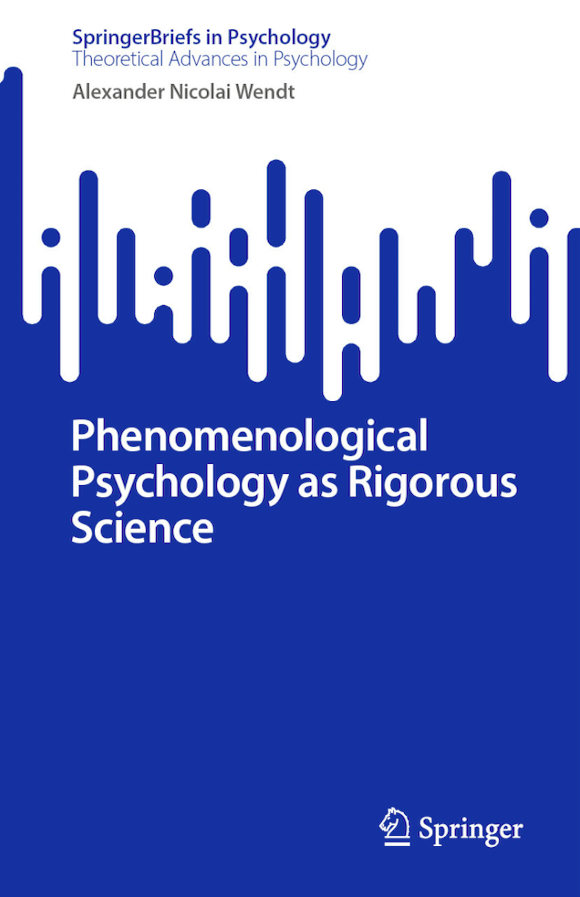Alexander Nicolai Wendt’s recent book, Phenomenological Psychology as Rigorous Science, attempts to build a much-needed bridge between psychology and philosophy. The presence of such a bridge has always been vital for psychology, as Wilhelm Wundt argued in his 1913 essay “Psychology’s Struggle for Existence,” and I hope others would join Wendt in building it.
Wendt is currently a postdoctoral researcher at the Sigmund Freud University in Vienna and the Ruprecht-Karls University in Heidelberg. Wendt is writing for an audience of psychologists (who have an interest in foundational issues of their discipline) and phenomenological philosophers (who have an interest in psychological science), offering them both an overview of the aims of phenomenological psychology.
Wendt argues that psychology, as a scientific discipline, needs to be more rigorous by addressing its foundational issues. He writes that these issues repeatedly surface as crises in the field’s history, which might in fact be signs of stagnation. The promise of phenomenological psychology, according to Wendt, lies in its potential to provide a foundation for the discipline, enabling a more meaningful and holistic understanding of psychological acts. Following Husserl, this approach recognizes that psychological phenomena cannot be understood without considering the subjective conditions of their existence.
One of the most appealing themes of the book is its tracing and cataloguing of phenomenological movements across different countries, Germany, Denmark, the US, drawing lessons from their struggles to establish roots and gain institutional momentum.
Another one of the book’s themes is the relationship between worldviews and scientific rigor. Wendt writes that a psychological research program would benefit from being aware of its own and alternative worldviews. By striving for rigor, psychology can achieve a more integrated and holistic understanding of knowledge.
The book emphasizes that rigor in psychology allows for a productive disagreement, enabling the field to systematize its controversies and understand the underlying meanings behind various theoretical conflicts. He contrasts Thomas Kuhn’s concept of paradigms with Ludwig Fleck’s idea of “thought styles,” and advocates for a pluralistic approach that can endure and embrace discursive tensions without succumbing to the need for consensus or social cohesion.
In a YouTube video dedicated to this book, I read a few passages from it and discuss its aim and significance.
If you’re interested in this topic, you might also find relevant my earlier video (linked below). In that video, I talk about a chapter from the book, Psychology as the Science of Human Being, written by Gerhard Benetka and Amrei Joerchel. The chapter is titled “Psychology as a Phenomenological Science,” and addresses a set of historical moments when the phenomenological method emerged within both philosophical and psychological contexts.
Similar to Wendt, Benetka and Joerchel highlight the relevance and importance of phenomenology in understanding psychological phenomena. They discuss key figures and developments such as the transition from Brentano to Husserl, the advent of Gestalt psychology, and the Würzburg School’s ambitions.
